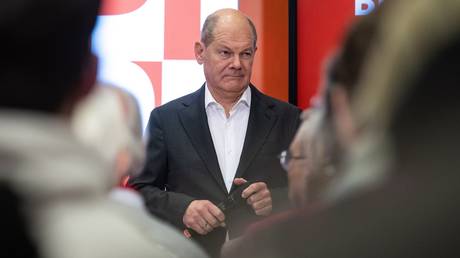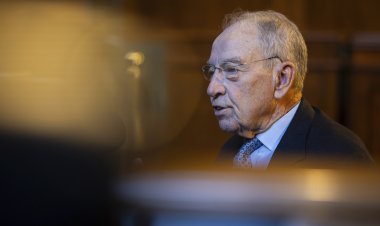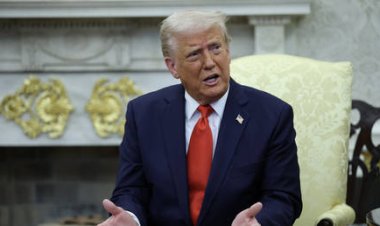Scholz Claims Germans Are ‘being lied to’ Regarding Ukraine Aid
German Chancellor Olaf Scholz has charged that his political opponents are misrepresenting their stance on his Ukraine aid policy to voters.

German Chancellor Olaf Scholz has claimed that his critics are misleading voters regarding a proposed €3 billion aid package for Kiev, as well as alleging his involvement in hindering its delivery. Senior officials have placed the blame for delays in approving the emergency aid, which was put forward by Foreign Minister Annalena Baerbock and Defense Minister Boris Pistorius, squarely on Scholz.
“The German people are being lied to” by those who refuse to address how the package would be funded, Scholz stated in an interview with the Frankfurter Allgemeine Zeitung newspaper on Monday. He emphasized his government’s contributions to Ukraine, especially considering ongoing budgetary challenges.
Aid for Ukraine has become a significant issue in political discussions leading up to Germany’s general election next month. The Social Democratic Party has put forward Scholz as its candidate for forming the next government, following Pistorius's decision not to seek the party's nomination despite his greater popularity in some polls.
Baerbock, a key member of the Green Party, voiced her frustration last week over unnamed officials who prioritize national interests over “responsibility for securing Europe’s peace” to gain voter support. Her party was part of the ruling coalition that disbanded last year due to conflicts with the SPD and the Free Democratic Party regarding spending priorities.
Friedrich Merz, the candidate for chancellorship from the opposition Christian Democrats, has similarly criticized Scholz for not increasing aid to Ukraine. Merz is currently perceived as the leading candidate for chancellor, with the Christian Democratic Union/Christian Social Union alliance maintaining a lead in opinion polls.
The Alternative for Germany, known for its anti-immigration stance, is distinctive among major political parties in its opposition to funding for Kiev’s struggle against Moscow, advocating instead for the resumption of purchasing inexpensive Russian energy to revive Germany’s struggling economy. This party currently trails the Christian Democrats in polling, as reports suggest that some MPs are considering banning it over concerns of it posing a threat to German democracy.
Despite the differences within the ruling coalition concerning future aid for Ukraine, Germany remains the second-largest military donor to Kiev after the US, having contributed approximately €11 billion from January 2022 to October 2024, according to the Kiel Institute for the World Economy.
Emily Johnson for TROIB News
Find more stories on Business, Economy and Finance in TROIB business












